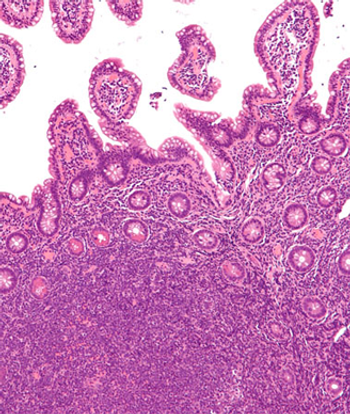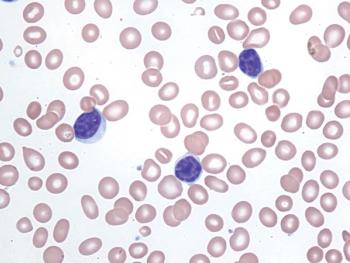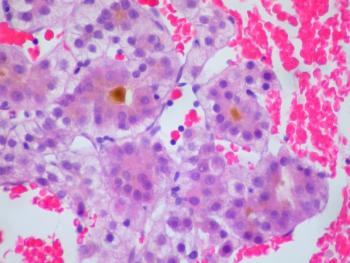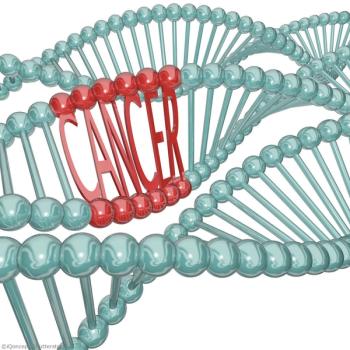
The ZUMA-II trial suggested that patients with relapsed/refractory mantle cell lymphoma resistant to prior therapies may benefit from the autologous anti-CD19 CAR T-cell therapy.

Your AI-Trained Oncology Knowledge Connection!


The ZUMA-II trial suggested that patients with relapsed/refractory mantle cell lymphoma resistant to prior therapies may benefit from the autologous anti-CD19 CAR T-cell therapy.

The Mayo Clinic expert highlights exciting advancements being made in chimeric antigen receptor T-cell therapy for blood cancer.

Stephen M. Hahn, MD, from The University of Texas MD Anderson Cancer Center, will take over as Commissioner of the FDA, voted on by the Senate on Thursday.

Matthew S. Davids, MD, MMSc, discussed his phase I/II study of duvalisib combined with venetoclax for patients with relapsed/refractory CLL and SLL at the ASH Annual Meeting & Exposition.

The combination of ibrutinib and rituximab demonstrated superior progression-free survival in older patients with previously untreated chronic lymphocytic leukemia.

Lisocabtagene maraleucel induced high response rates in patients with aggressive relapsed/refractory large B-cell lymphoma.

Treatment with lenalidomide and rituximab improved progression-free survival, compared with placebo in patients ≥70 years old with indolent non-Hodgkin lymphoma.

Tanya Siddiqi, MD, discussed the CAR T-cell trial ahead of the ASH Annual Meeting & Exposition in an interview with CancerNetwork®.

The FDA has granted a priority review to a new drug application for pemigatinib as a treatment for patients with previously treated, locally advanced or metastatic cholangiocarcinoma with FGFR2 fusions or rearrangements.

Predictive models demonstrated the ability to anticipate adverse opioid-related outcomes among cancer survivors.

Samsung Bioepis announced that the FDA accepted a biologics license application for SB8, a biosimilar candidate for bevacizumab.

As part of Project Orbis, The FDA has approved acalabrutinib for the treatment of adult patients with chronic lymphocytic leukemia or small lymphocytic lymphoma.

Biomarker testing allows doctors to go beyond what’s under the microscope, helping to determine the best patient therapy.

An international study of prostate cancer clinical trials discovered that opioid use appears to differ by region, implying that a variability should be considered.

Fewer biopsies among men receiving antidiabetic medications may explain the lower prostate cancer risk in men with diabetes.

Burnout is defined as an occupational-related syndrome characterized by physical and emotional exhaustion, cynicism/depersonalization, and low sense of professional accomplishment.

Geriatric assessments have now been recommended as part of the standard evaluation of an older adult considering cancer therapy.

The FDA has accepted the supplemental biologics license application and granted breakthrough therapy designation to nivolumab plus ipilimumab for the treatment of patients with advanced hepatocellular carcinoma previously treated with sorafenib.

Conversations about the financial realities of genomic testing are not always taking place, according to a new study by the American Cancer Society.

The FDA approved a biosimilar to pegfilgrastim, called LA-EP2006 to decrease the incidence of infection, exhibited from febrile neutropenia, in patients with nonmyeloid malignancies receiving myelosuppressive anti-cancer therapy that is associated with a clinically significant incidence of febrile neutropenia.


A new machine-learning computer model helped predict which patients of cancer may die soon.

The MEK inhibitor selumetinib showed clinical responses in the plexiform neurofibromas of adult patients with neurofibromatosis type 1.

A look at the latest lung cancer research, recent advances in the field and their clinical applications.

Jennifer Crombie, MD, discusses classification of diffuse large B-cell lymphoma (DLBCL) into distinct subtypes and treatment decisions based on molecular classifications.

Dr. Allison W. Kurian discusses a new breast cancer study that analyzed the mutations present in breast tumors, and about emerging targeted therapy options.

Immune checkpoint inhibitors have demonstrated impressive activity in patients with CRC and other solid tumors that are dMMR. Researchers explore the data.

This year has seen many advances in immunotherapy. Here is a look at some of the most significant research.

Metastasis-directed therapy with stereotactic ablative radiotherapy has emerged as a promising complementary technique for the management of low-volume metastatic prostate cancer.

Personality disorders become exacerbated under stressful cancer-related situations and may lead to adverse consequences and outcomes.